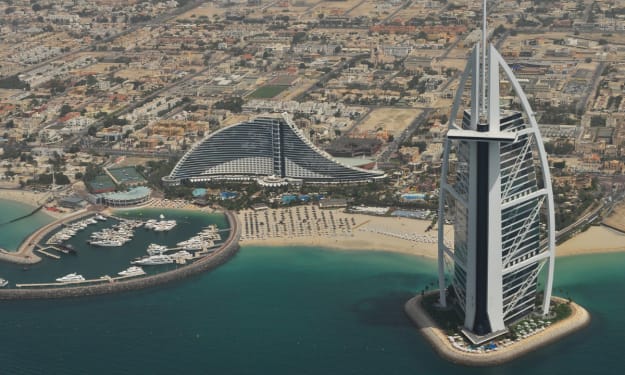The Beauty of Tradition
A Journey into Mauritania's Unique Cultural Practices

I experienced it myself a long time ago, when I was little. They wanted me to be more beautiful and attractive to men. You know... here thin women... aren’t considered the same as fat women. This is one of the last remaining places that carries on a very ancient tradition, that of forcing women to eat against their will to become fat. Beauty is a gift from God. Some have it, some don't.
My name is Giuseppe, and I have a mission: to travel the world, meet the most extraordinary people on the planet, and ask them a simple question: "What does happiness mean to you?" Welcome to Project Happiness.
We've arrived in Kiffa, 500 km from the capital, Nouakchott. All eyes are on us because we're far from the tourist routes. Usually, western tourists don’t come here because there’s nothing to see. We're here because this is one of the last remaining places still carrying on a very ancient tradition: forcing women to eat against their will to become fat. Because here, a fat woman is much more attractive and so it's much easier to find a husband.
The practice of fattening women to make them more beautiful is deeply rooted in Mauritanian culture and beauty standards. A fuller figure signifies prosperity, health, and fertility. This custom is called "Leblouh," but it’s best not to use that word in public, because although 80% of women have experienced it, it remains a taboo. Mothers often believe there is no other way to ensure a good future for their daughters, forcing them to consume enormous amounts of food and drink, and inflicting pain if they do not comply.
In the marketplace of this village, all of the women embroider traditional Mauri cushions. This authentic and sincere market is one of those adventures I dreamed of having as a kid. You can’t plan it, you can’t write about it, you can’t read about it in books. It just happens when you really travel.
It's not easy finding someone who wants to tell her story, but even those who don’t talk show the marks left by this practice through their refusals. The news spreads quickly of a “bidan” (white person) searching for a woman to interview about leblouh, and a woman invites me into her shop.
She explains that leblouh involves a months-long process during which girls are forced to drink liters of “basi” (a drink made of camel’s milk and millet) all day and eat excessively. Another fattening drink is "goussi," made with milk, rice, peanut oil, and pure animal fat. She recounts her own experience from childhood, realizing as an adult that they wanted her to be more beautiful and attractive to men.
Listening to her makes me reflect on the concept of beauty. Mauritanian culture offers a unique interpretation of attractiveness, but the serious health problems related to weight raise ethical questions about prioritizing aesthetic ideals over health.
In Terjit, a tiny green spot in the Sahara Desert, we meet women who share their experiences. One revered leader explains that beauty here means a natural skin tone and a fuller figure. However, this comes at a painful cost: mothers crush their daughters' wrists between canes to force them to eat and drink until they become fat. Despite this, many women believe that kindness and congeniality define true beauty.
Before leaving Terjit, the women invite us to see their greatest treasure: the Oasis. This age-old refuge for nomadic peoples offers water, food, shade, and shelter in the most inhospitable place on the planet. Here, palm trees and water, ordinary to us, are rare treasures.
Our concept of beauty is conditioned by our context. In Mauritania, we discovered leblouh, a practice far from our ideas of individual freedom. Meanwhile, we in the West pursue unobtainable beauty standards through plastic surgery.
What truly is beauty? Plato's idea of beauty tied to morals, values, spirit, and love suggests that each of us should be allowed to blossom into our individuality, where beauty becomes a pure expression of what we carry inside.
About the Creator
Jeanette M
Am a lover of stories as I learn from them.
Please support my work.
Enjoyed the story? Support the Creator.
Subscribe for free to receive all their stories in your feed. You could also pledge your support or give them a one-off tip, letting them know you appreciate their work.





Comments
There are no comments for this story
Be the first to respond and start the conversation.